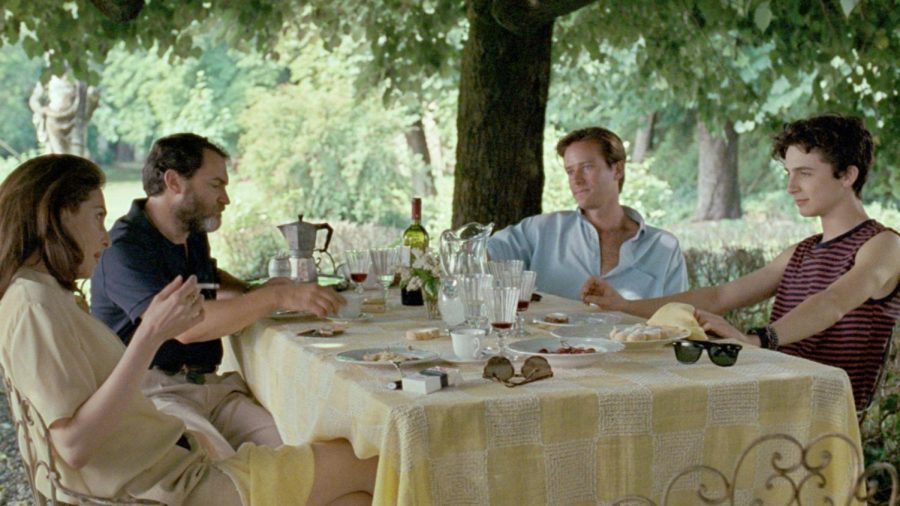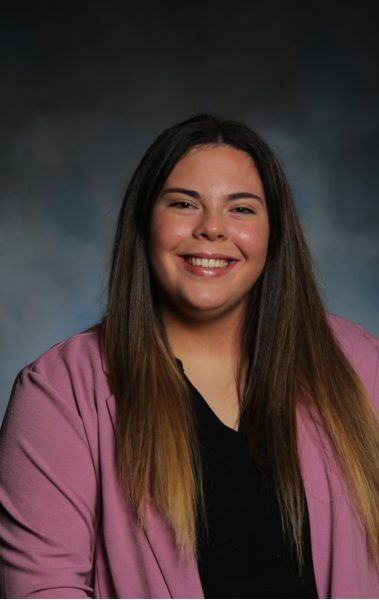No phones: In ‘Lady Bird’ and ‘Call Me By Your Name,’ parents actually talk to their kids
January 9, 2018
“Remember,” a father says to a son. “Our hearts and our bodies are given to us only once. … And before you know it, your heart is worn out. And, as for your body, there comes a point when no one looks at it, much less wants to come near it. Right now, there’s sorrow. Pain. Don’t kill it, and with it the joy you’ve felt.”
If the Luca Guadagnino movie “Call Me By Your Name” wins an Academy Award, it will be in part because of that unspeakably tender scene wherein a father, a father with his own struggles and regrets, tries to tell his gay, 17-year-old son that he is not alone.
Although the screenplay to the movie is by James Ivory, this piece of dialogue comes pretty directly from the 2007 Andre Aciman novel upon which the film is based. It’s pretty much a restatement of a philosophy often associated with the English romantic poet John Keats, who wrote in the poem “Ode on a Grecian Urn”:
“Bold Lover, never, never canst thou kiss
Though winning near the goal yet, do not grieve;
She cannot fade, though thou hast not thy bliss,
For ever wilt thou love, and she be fair!”
In other words, among the many paradoxes of life is the truth that you cannot feel joy without also knowing sorrow. One invariably accompanies the other. Both are better than feeling and experiencing nothing, or even just operating within a risk-free middle ground. This is what most of us want to teach our children.
Of course, they would have to switch off their phones first.
Watch “Call Me By Your Name,” a film set in the early 1980s and centered on an academic family, and you’ll surely be struck by the amount of family conversation going on. Meals are long, slow affairs, peppered with intergenerational chatter. When the 17-year-old protagonist (played by Timothee Chalamet) wants to use a phone, he has to sit in the hallway on a long, corded affair, so public that his parents can at least half-hear his conversations.
You may recall what that was like.
Actually, they already have a sense of what is going on with him: He spends a lot time just sitting with his parents, talking. It’s not that the family conversations are easy, but the film makes clear they are happening and maybe saving this kid’s life, or, at least, significantly raising the odds of his future happiness.
They’re happening in “Lady Bird” too. That film — a likely rival at Oscar time — is set in a very different time and place, Sacramento, Calif., in 2002.
But there were no iPhones around then either. Few invasive screens to close people off from those they love. Intentionally or not, both of these films reveal something about the price we have to pay for our attention to our feeds.
Like “Call Me By Your Name,” “Lady Bird” is a coming-of-age story that revolves around a 17-year-old — in this case, the title character, played by Saoirse Ronan. Her relationships with her parents are more difficult and more central to the film. But they are all, at least, talking all the time.
Indeed it’s the rhythms of the mother-daughter conversations (Laurie Metcalf plays the mother) that dominate the film and the characters’ consciousness. Even when they’re arguing, they’re unmistakably alive.
Greta Gerwig, who wrote and directed the film, clearly understands how many family fights actually are repetitions of battles previously fought, but she also argues in this movie that even antagonistic chatter between an adolescent and a parent is far better than no talk at all.
She is right about that.
Everything is nourishment for Lady Bird, all part of her learning that “beauty is truth and truth, beauty, that is all Ye know on earth, and all ye need to know.”
She can take it from there herself.
———
©2017 Chicago Tribune
Visit the Chicago Tribune at www.chicagotribune.com
Distributed by Tribune Content Agency, LLC.
—————
PHOTO (for help with images, contact 312-222-4194):








